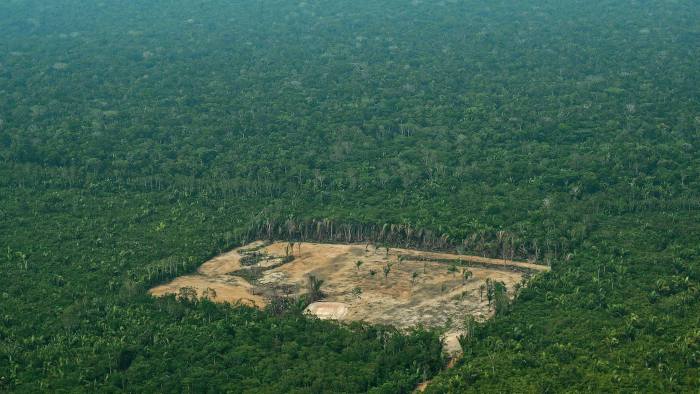We have likely all heard the phrase “money makes the world go round”. This can apply to an assortment of subjects, one of which being the purported need to reconcile economic development with environmental sustainability. It is generally agreed that the economy shapes the damage we do to the environment, but the supporters of something called “natural capital” take it a step further.
They argue that in order to think of solutions to the current environmental crisis, we have to think in terms of money – specifically, in terms of the capitalist economy, which from this perspective is both the poison and the cure. Monetary valuation is the process by which exchange values are determined for non-market goods and services. Gradually, it is becoming the dominant language by which environmental values are expressed and understood in mainstream narratives.
Ecological economics was developed alongside the modern environmental movement, and aims to recognise the existence of invisible costs and benefits (economists call these “externalities”) of the environment, thereby advocating for the re-introduction of such externalities into the realm of economic calculation and decision-making. An example of such “invisible” environmental costs that are intertwined with the burning of fossil fuels could be the massive contributions to the greenhouse effect and air pollution which the combustion of carbon entails, which are unfortunately not typically regarded when counting up costs of fuel production.
From the perspective of ecological economists, damaging the environment compromises economic growth and development, and therefore these damages must be accounted for, like any other financial costs. In order to do so, ecological economists promote the notion of natural capital to designate monetary value to externalities. However enticing this idea may be, it fails to address deeper issues inherent to capitalism which incite uneven environmental degradation and exacerbates the divide between humans and nature.
From the perspective of ecological economists, damaging the environment compromises economic growth and development, and therefore these damages must be accounted for, like any other financial costs
There is an assumption underlying the idea of natural capital, which is that the commodification of nature is overall positive, ensuring environmental conservation. Sadly, in reality, it is a lot more complicated than that. Although many scientists and environmentalists perform monetary valuations with aims of improving environmental protection, they are often, in truth, enabling the commodification of nature which eventually leads to its exploitation and degradation.
Natural capital, in this sense, is a way by which those in power can maintain the global capitalist economy, without needing to face deeper socio economic issues which are at the root of environmental degradation and exacerbating the uneven geographies of that environmental damage. According to Marxist thought, capitalism is inherently driven to expand to and reach limits, which are surpassed via invention of new outlets of accumulation or “frontiers”. To capitalists, natural capital represents a new frontier, an opportunity for more growth for growth’s sake, as it were.
I am wary of natural capital acting like a price tag for natural resources, allowing once-common environmental goods to be privatized, extracted and, thus, lost from the commons. There are also some dangerous implications with the recognition of natural capital in developing countries (i.e. in the Global South), which are often described as having high levels of “standing natural capital”. As such, it is possible that those countries (who are rich in natural resources but poor in monetary resources) will become indebted to ultra-wealthy investors (i.e. from the Global North) who are able to access returns on their investments from the new income streams arising from the newly priced natures in these countries. In this sense, the concept of natural capital problematically fails to address the broader social and historical processes of commodification and accumulation by dispossession. With this view, ecosystems are but a tool for capital provision and financial investment.
Lastly, one of the key arguments in favor of natural capital relates to environmental service valuation, in which the nature-derived assets that benefit society are defined in terms that can be directly applied and understood from a perspective of economic policy. For instance, the monetary valuation of, say, Ireland’s boglands may allow the appropriate prioritization by the Irish government in protecting the resources and services that they supply.
I am wary of natural capital acting like a price tag for natural resources, allowing once-common environmental goods to be privatized, extracted and, thus, lost from the commons
However, despite the exciting prospects of natural capital as a policy tool to inform decision-making, the single metric provided by it cannot sufficiently demonstrate the complexity and interconnectivity of the world’s ecosystems. There is a risk with natural capital that certain environmental values will not be accurately reflected in their designated values of natural capital, which could have deleterious effects upon the greater environment and thus those depending on it.
Overall, using natural capital as a way to address nature in economic terms is an exciting and popular prospect, and it is not inherently harmful to environmental protection. However, antithetical to many of the claims made by ecological economists and similar thinkers, it seems to emphasize the economy over ecology, failing to address the underlying sociopolitical issues inherent to capitalism that have led to the over-exploitation of the world’s natural resources. As the field of environmental governance progresses, it is important to question who the increasingly normalized concept of natural capital truly benefits – and the answer, as I have now explained, is not necessarily the greater good.







